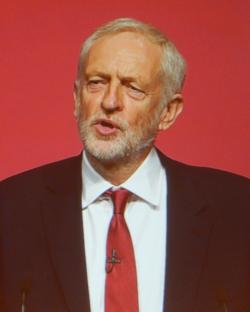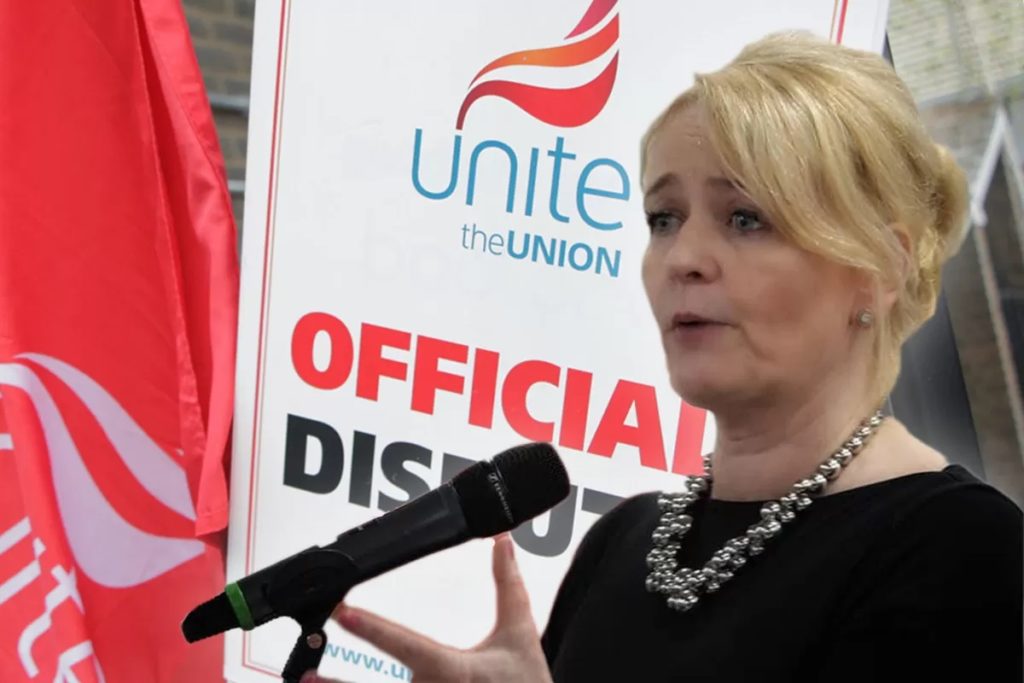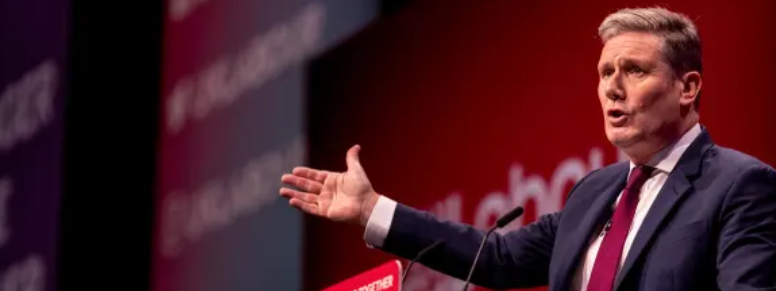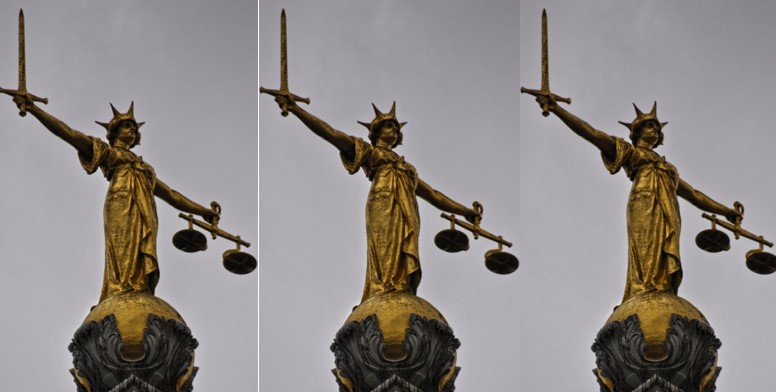It is coming up to two years since Labour lost the last general election and since then the Party has become immeasurably weaker. It has lost somewhere between a quarter and a third of its membership and those who remain are less inclined to go out to campaign than they have been any time in the last decade. After having been flush with cash, the Party is now deeply in the red and having to lay off staff. Starmer’s Shadow Cabinet reshuffle this week will change nothing.
If Labour under Keir Starmer is creeping painfully upwards in the opinion polls, (now neck and neck with the Tories) it is only because of the appalling corruption, sleaze and failures that characterise the Johnson government. Faced with the UK’s worst post-war government, Labour ought to be twenty points ahead in the polls.
The majority of working class people are struggling against a relentless squeeze on their living standards – with worse to come – and live with daily insecurities and uncertainties that MPs, as well-off as they are, would only encounter in their worst nightmares. But rather than pointing at Labour’s woeful lack of appeal to these very same voters, who it ought to try to win back, Labour’s right wing are crowing only about their factional successes.
One-sided factional war
This is the context of Keir Starmer’s Shadow Cabinet reshuffle – a one-sided factional war being conducted against the Party’s left wing. The front-bench changes amount to a consolidation of the hard right and the further isolation of even the softest of soft lefts on the Labour benches. With the resignation of Cat Smith, there is now no member of the Shadow Cabinet with any links to Jeremy Corbyn’s team.
In its most recent circular to its members, the right-wing pressure group Progressive Britain (formerly just ‘Progress’) noted that “We’re especially pleased with the promotions of Progressive Britain political panellists, Bridget Phillipson, Wes Streeting, and our chair – Pat McFadden.”
Two years after the 2019 defeat, the right are continuing to propagate myths about the election result. Thus, the Progress Executive Director, Nathan Yeowell, wrote in Labour List “it’s no exaggeration to say the election was a near-death experience for the Labour Party…Fast-forward to December 2021, our prospects under Keir Starmer are significantly better…“

For the record, we ought to restate yet again that in 2017, an election actively sabotaged by the Party right-wing, Labour under Corbyn won back three and a half million of the Labour votes thrown away in the Blair/Brown years. Even in losing the 2019 election, Corbyn’s Labour won more votes than under Ed Miliband in 2015, George Brown in 2010 or Tony Blair in 2005.
It is an irony of historic proportions that the main architect of that Labour defeat in 2019 is now Labour leader. His sabotage on the issue of Brexit was even anticipated. This is what our correspondent wrote from the Labour Party conference in 2019, weeks before the election, when it discussed Brexit:
Red-wall seats lost by Starmer, not Corbyn
“The session was started by Keir Starmer who, like Emily Thornberry, came out personally in favour of remain, again effectively siding with Watson and the right-wing against Corbyn. ‘If you want to stop a Tory deal,’ he said, looking ahead to a general election, ‘then vote Labour…If you want to stop a no-deal, then vote Labour…If you want to stay in the EU, then vote Labour.’ I was expecting, like many delegates, that he would add a fourth…’If you want to leave the EU under much better conditions, then vote Labour’, but this last one didn’t happen. Starmer, like Thornberry, is out of kilter with the leader’s and the NEC’s position…”
The ‘red-wall’ pro-Brexit seats were not lost by Jeremy Corbyn, in other words, but by Keir Starmer. After the election defeat and Corbyn’s resignation, Starmer was only able to win the leadership on the basis of his ‘ten pledges’, after which he cynically filed them in the bin. With David Evans as new party general secretary, Starmer has set about isolating, excluding and expelling the left of the party.
To suggest, as Yeowell now does, that Labour’s prospects under Starmer are now “significantly better” is to fly in the face of the evidence. Yeowell is entitled to his own opinions, but he is not entitled to his own facts. Labour’s performance in every by-election and major electoral test since Starmer became leader has been a disaster.
If Labour does continue to crawl north in the polls and if it does end up looking capable of winning an election by 2024, it will be entirely down to the utter rejection, not to say hatred of the Tories. It will not in the slightest be due to the inept, uncharismatic and, in terms of policy, vacuous leadership of Starmer.
In his article in Labour List, Yeowell referred to the call by Tony Blair for the “complete deconstruction and reconstruction” of the Party. By this he means the elimination of all traces of democracy and accountability for Labour MPs, even if that entails burning to the ground the grass roots structures of the party and the historic link with the trade unions. The ‘destruction’ of the Party, in other words.
On all political issues, Labour conference was on the left
As we have argued, however, in terms of political ideas, the right wing have nothing to offer. Paradoxically echoing some ultra-lefts, by glossing over the fact that every political resolution passed by conference was from the left of the party, Yeowell referred in his article only to the Labour conference organisational decisions. Conference introduced changes, he wrote, “raising the threshold for trigger ballots for siting MPs, increasing the proportion of MPs needed to get a candidate on the ballot in a leadership election and changes to the rules governing such contests” These measures, he says, “have put the party on a stronger, more sustainable footing”.
Strange as it may seem, there is no record of a single voter in Hartlepool, Batley and Spen, or anywhere else in the UK for that matter, complaining that they were not going to vote Labour until the party increased the threshold for MPs electing a leader, or raised the bar on deselecting Labour MPs.
So what does this week’s Shadow Cabinet reshuffle represent? The most important feature of the changes is the fact that it has consolidated the right wing even further and it has isolated or side-lined any Shadow cabinet member who may have been a focus of opposition to Keir Starmer, even from an ever-so-slightly more ‘left’ position.

Once again, as she had been immediately after the Hartlepool by-election in May, deputy leader Angela Raynor, was snubbed by Starmer. Were it not for the fact that Raynor was elected and therefore carries a mandate from the membership, there is no doubt that she too would have been sent to the back benches. According to the BBC, when asked about the reshuffle, Rayner said she “didn’t know the details“, adding, “I’ve been concentrating on the job that I’m doing.” Which is code to say that she is out of the leadership loop.
‘accelerating Labour’s shift to the centre’
The Guardian report on the reshuffle, mentioning particularly the return of Yvette Cooper as Shadow Home Secretary, noted that it was “viewed at Westminster as accelerating Labour’s shift to the centre under his leadership”. Former Shadow Chancellor John McDonnell was not wrong when he criticised the reshuffle on Twitter, writing that Starmer was, “reviving the careers of former Blairite ministers and simply reappointing existing Shadow Cabinet ministers to new posts does give the impression of Christmas Past not Christmas Future.”
Lisa Nandy has been given a non-job shadowing Michael Gove who is also doing a non-job (laughingly called ‘levelling up’) and her demotion from the more senior Shadow Foreign Secretary role will not be easily forgotten. Even the hapless Ed Miliband has turned out to be too ‘radical’ for the right, having unforgivably contradicted Starmer over the need for public ownership of the energy sector. Poor Ed now has no specific government department to shadow directly and is likely to be gradually eased further aside.
Prior to the new appointments being made, Cat Smith, the last remaining link to the Shadow Cabinet of Jeremy Corbyn, resigned. In a letter to Starmer she expressed her concerns “about Jeremy not being readmitted to the Parliamentary Labour Party after he was readmitted into our party membership following due process. This position is utterly unsustainable and it is important that you truly understand how much damage this is causing in Constituency Labour Parties and amongst ordinary members, a number of whom are no longer campaigning…”
Growing gulf between the leadership and the rank and file
Smith’s warnings will be like seeds cast on stony ground. In the longer run, the consolidation of a hard-right Shadow Cabinet will increase the already wide gulf between the membership of the party and the leadership. In fact, there could be further complications for Starmer in the growing divide between the right-wing head-bangers and the likes of Andy Burnham, Lisa Nandy and Angela Raynor who are seen by many party members as closer to the grass roots than the right wing economists and careerists.
There is also a growing gulf between the trade unions and the leadership. There are at least two unions (CWU and Unite) effectively working within the party against him, and two others (GMB and UNISON) looking less secure for the right wing as each month goes by. That is another gap that can only widen in the coming period.

An important feature of Starmer’s reshuffle is that it has strengthened the voice of the Israeli government inside the Shadow Cabinet. Labour Friends of Israel lists 105 Labour parliamentarians among its ‘supporters’ and ‘officers’ and that includes no fewer than 68 MPs in the Commons. We always get a deafening silence from these people in the face of Israeli atrocities in Gaza and the ongoing violence meted out to Palestinians on the West Bank. (See this article, for example, on settler violence used to confiscate Palestinian land)
We can list the increased LFI influence in the Shadow Cabinet as follows: Yvette Cooper (LFI supporter) is replacing Nick Thomas-Symonds (not an LFI supporter) as Shadow Home Secretary. A scaled-back role for former leader Ed Miliband (not an LFI supporter), while Jonathan Reynolds (LFI officer) replaces him as shadow business secretary. Bridget Philipson (LFI supporter) replaces Kate Green (not an LFI supporter) as shadow education secretary. Wes Streeting (LFI supporter) replaces Jonathan Ashworth (not an LFI supporter) as Shadow Health minister. Lucy Powell (LFI supporter) now covers culture. Emily Thornberry (LFI supporter) has been moved to shadow attorney general, replacing Lord Falconer (not an LFI supporter). Lisa Nandy, also demoted by Starmer is not listed as a supporter of LFI.
Party membership still sympathetic to Corbyn
There is likely to be a long way to go before the next general election, although nothing is certain in politics, particularly in these most volatile of times. The problem for Labour’s right wing is that the ranks of the party are still overwhelmingly to the left of the leadership: sympathetic to Corbyn, after his spiteful isolation from the parliamentary party and supportive of the radical election manifestos of 2017 and 2019.
It will not be the organisational and administrative tyranny of the right wing – expelling members, trampling on democratic rights, making up rules as they go along – that will in the end be decisive. It will be the concrete social and economic realities that are faced by workers. It will be the private looting and dismemberment of the NHS, the collapse of local government services, the economic impact of Brexit and Covid. Above all, it will the merciless squeeze on living standards that will be the decisive issue in politics in the next three years. These pressures will be reflected in all of the trade unions that are still affiliated to the Party.
Labour’s right wing have nothing to offer in the way of policies on any of these issues. Starmer’s new-look Shadow Cabinet will be just as bad as the last, buffeted by events beyond their control or understanding. A storm is coming and those at the ‘top’ of the Labour Party have more reason to fear it than those at the ‘bottom’ or on the left.



